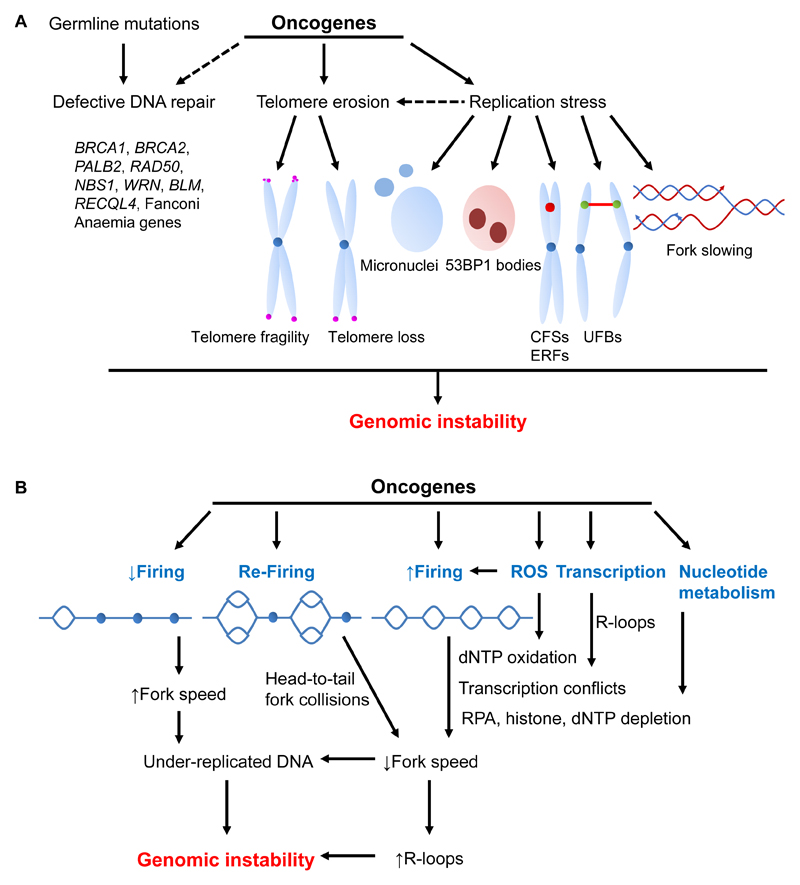Figure 3.
Oncogene-induced genomic instability. A, germline mutations in DNA repair genes lead to GIN. Activated oncogenes elicit genomic instability by causing defects in DNA repair, telomere erosion or replication stress; see text for details. B, activated oncogenes induce a multifaceted set of intertwined activities that deregulate fork progression leading to under-replicated DNA and genomic instability. In particular, through deregulation of the Rb/E2F pathway licensing factors are increased which instigates origin re-firing that decreases fork speed in response to head-to-tail fork collisions. Deregulation of CDK activity can decrease or increase origin firing. In the first case, fork speed is initially increased, but the cell ends up with under-replicated DNA due to its inability to rescue endogenous RS by firing dormant origins. Increased origin firing raises the possibility of TRCs and simultaneously may cause depletion of dNTPs, histones or RPA. Oncogene-induced ROS either increase origin firing or oxidize nucleotides that potentially may affect fork progression. Oncogenes also increase transcription activity that either directly or through R-loops enhance TRCs.

